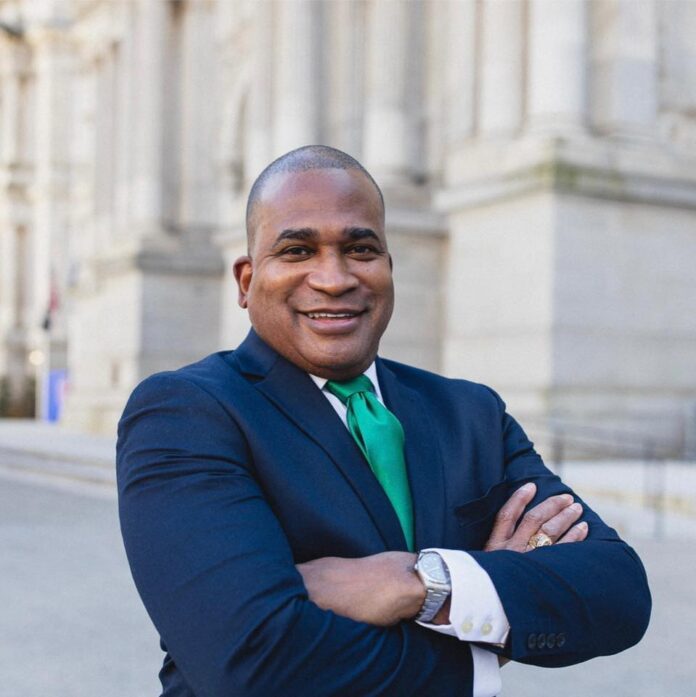A recent headline in Forbes read that 2021 will “become a record-breaking year for anti LGBTQ Laws.” As a gay, Black man who grew up in Texas, part of me read those words and felt utterly exhausted.
It’s 2021.
But another part of me saw it as a call to action. It reminded me why I decided this year to run for judge. It’s time to bring more representation and fairness to every level of our government, including Philadelphia’s court system.
Every morning, my husband Paul and I start our days to the sounds of our three beautiful, adopted kids getting ready for school, which happens in our living room thanks to COVID. While running a race for Municipal Court in Philadelphia from my living room can be stressful, seeing my family is also an important moment of reflection for me.
While I look around each day, I see a family whose rights have continuously been decided by the court system. Our right to marry was upheld by the Supreme Court in 2014. Our right to adopt children together has constantly been battled in the courts, but many courts have upheld that gay couples should be treated the same as straight couples when it comes to adoption. But there is still more work to do to make this a more equitable society.
I am running for public office because I understand the power of the courts firsthand. And I understand that there need to be more voices like mine in the halls of power. Black voices. Queer voices. Voices of people who haven’t traditionally had a seat at the table. The voices of people who understand that the criminal justice system in America is broken, and who want to fight to make sure their children grow up in a world that’s more equitable than the one we grew up in.
As a Judge in the Municipal Court, I will use my perspective and experience to fight with everything in my power to ensure that people in my court are treated with fairness and equity, regardless of their background, race, ethnicity, religion, sex, national origin, sexual orientation, gender identity, language or disabilty.
This year’s judicial elections come as our nation continues an unprecedented conversation around race and criminal justice that began last summer.
The murder of George Flord was the start of an unprecedented conversation around criminal justice in our country. It can’t stop now that a verdict has been reached.
Philadelphia’s court system has come under fire in the last few years for being too racist, too nepotistic, and frankly, too “OK” with the status quo. Of course, the overwhelming majority of judges and individuals in our courts are good, honest, hard working people. I simply believe that I can be an added voice to make sure justice is served given what has been reported already.
While I single-handedly can’t change an entire system, I hope to be a voice for progress that helps move the needle towards real justice. Justice that lessens crime in the long-term and provides defendants the opportunity to learn from their mistakes and become better, rather than getting tangled up in a system that often results in recidivism.
Every day as a judge, I will be motivated by setting an example for my children. To show them that fighting for change, though hard, is worth it. That by waking up every morning motivated to make things better for people who have been oppressed by the systems in this country, we can get this city and this country to a better place.
Real justice — real change — won’t happen overnight. And it certainly won’t happen just from electing me to Municipal Court. But I believe that the unique representation and experiences I bring to the court will be a marker for further progress to come in our city. And I’m proud to run on that bedrock.
Greg Yorgey-Girdey is a longtime resident of Philadelphia and an experienced attorney with nearly two decades of law experience in the City focused on litigation, conflicts and compliance. He lives in South Philadelphia with his husband, Paul, and their three children. He previously served as co-chair of Liberty City LGBT+ Democratic Club. He is running for Municipal Court Judge in 2021.

